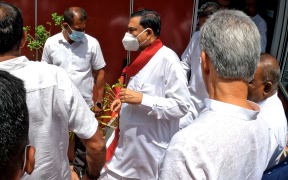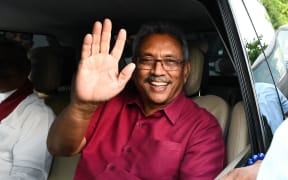Sri Lanka's President Gotabaya Rajapaksa has fled the country on a military jet, amid mass protests over its economic crisis.
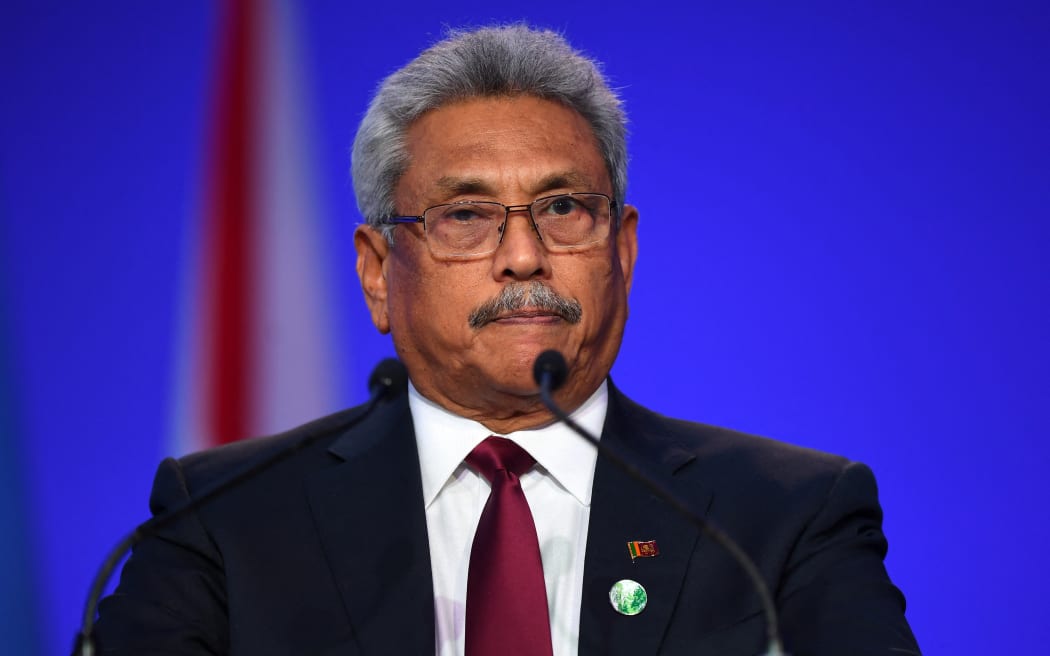
President Gotabaya Rajapaksa pictured in 2021. The The 73-year-old arrived in the Maldives after fleeing Sri Lanka on a military jet. Photo: AFP / Pool / Andy Buchanan
The 73-year-old arrived in the capital of the Maldives, Male, at around 3am local time, the BBC understands.
Rajapaksa's departure ends a family dynasty that has ruled Sri Lanka for decades.
He had been in hiding after crowds stormed his residence on Saturday.
His brother, former Finance Minister Basil Rajapaksa, has also left the country, sources have told the BBC. He is said to be heading to the US.
As news of the president's departure filtered through, noisy celebrations broke out among demonstrators at Galle Face Green, the main protest site in the capital city, Colombo.
On Tuesday evening there were already thousands of people massing at the park, awaiting the president's resignation.
Sri Lankans blame President Rajapaksa's administration for their worst economic crisis in decades.
For months they have been struggling with daily power cuts and shortages of basics like fuel, food and medicines.
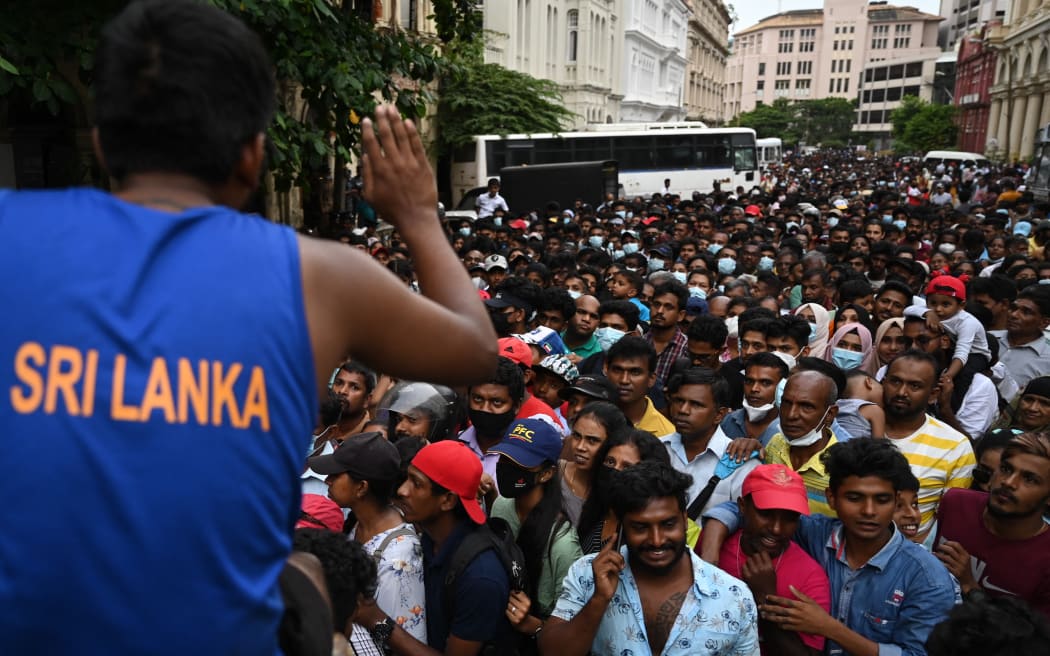
Crowds head towards Sri Lankan President Gotabaya Rajapaksa's official residence in Colombo on 11 July 2022, after it was overrun by anti-government protesters. Photo: AFP / Arun Sankar
The leader, who enjoys immunity from prosecution while he is president, is believed to have wanted to flee abroad before stepping down to avoid the possibility of arrest by the new administration.
The president's departure threatens a potential power vacuum in Sri Lanka, which needs a functioning government to help start digging it out of financial ruin.
Politicians from other parties have been talking about forming a new unity government but there is no sign they are near agreement yet. It's also not clear if the public would accept what they come up with.
Under the constitution, the prime minister, Ranil Wickremesinghe, should act in the president's stead if the latter resigns. The prime minister is considered the president's deputy in parliament.
However Wickremesinghe is also deeply unpopular. Protesters set fire to his private residence on Saturday - he and his family were not inside - and he said he would resign to make way for a unity government, but gave no date.
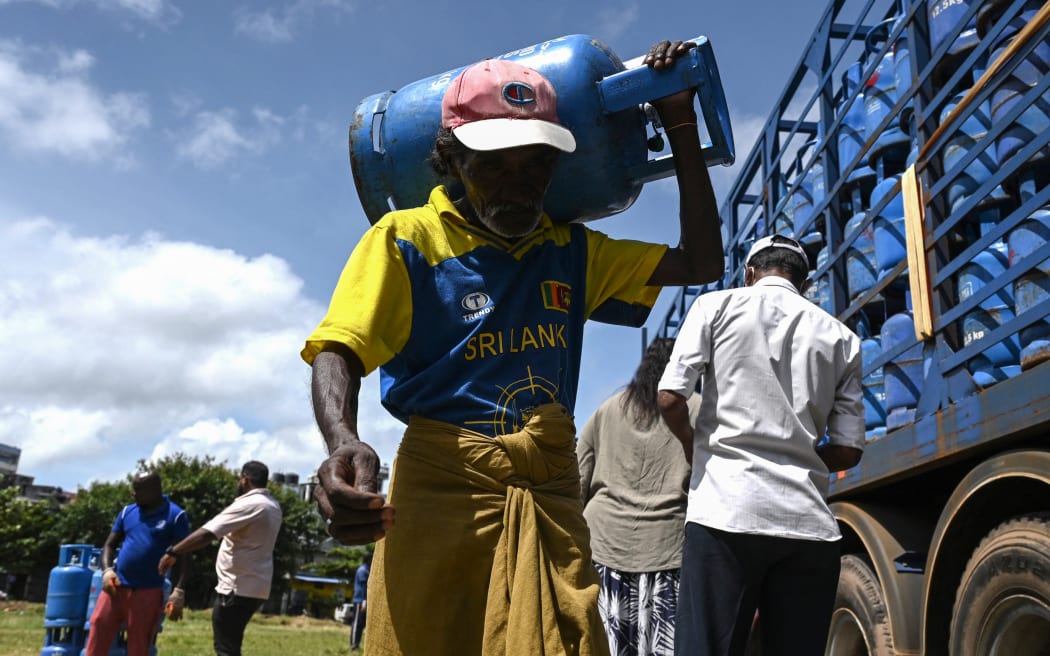
Sri Lankans are forced to queue to collect essentials like cooking gas, and prices have soared. Photo: AFP / Arun Sankar
That leaves the parliament's speaker as the next most likely to step in as caretaker president, constitutional experts say. But Mahinda Yapa Abeywardena is an ally of the Rajapaksas, and it is unclear whether the public would accept his authority.
Whoever does become acting president has 30 days to hold an election for a new president from among members of parliament. The winner of that vote could then see out the remainder of Mr Rajapaksa's term until late 2024.
On Monday, the main opposition leader Sajith Premadasa told the BBC he would be tilting for the presidency. But he also lacks public support and there is deep public suspicion of politicians in general.
The protest movement which has brought Sri Lanka to the brink of change also does not have an obvious contender for the country's leadership.
- BBC
